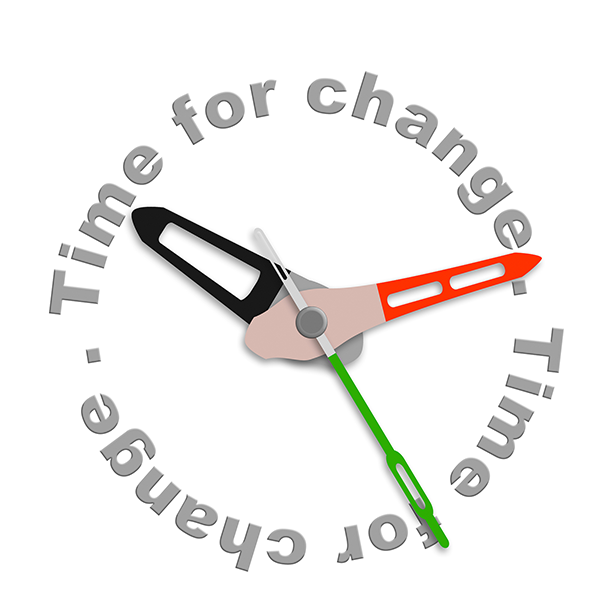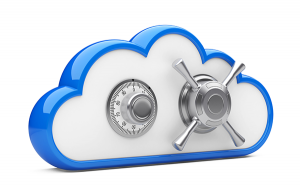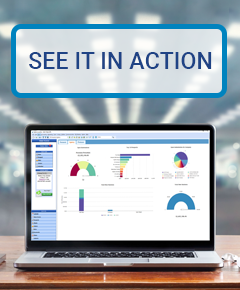Change Management, Choosing an Agency Management System
 Making any sort of change can be intimidating and scary, and changing your agency management system is no exception. Whether it’s a small system update or an overhaul, knowing you need a change is the first step. Your reasons may vary (improve efficiency, lower costs, reach more clients) but the process of committing to and enacting a change is the same.
Making any sort of change can be intimidating and scary, and changing your agency management system is no exception. Whether it’s a small system update or an overhaul, knowing you need a change is the first step. Your reasons may vary (improve efficiency, lower costs, reach more clients) but the process of committing to and enacting a change is the same.
Investigate and Decide
Know your options. Do you need an update to a current system? A plug-in or add on? Or do you need a whole new system? If you’re looking at a new system, decide whether you want to keep your provider to try someone new. The size of your change will determine how far in advance to plan, and how much research is required before making a decision.
Communication and Consult with Staff
Buy-in with staff is critical to a successful transition. Communicate with your staff early on that a change is coming, get their input on options, and keep them updated along the way. Ensure your staff supports the change, and if not, work with them individually or as a group to win them over.
As you move to implementation, continue regular communication. Update on any changes needed along with an explanation. Keeping staff involved in the decision making process and up to speed on implementation will ensure a smoother transition and an all-around happier work environment.
Stay in Contact with Your Provider
Make contact with your provider at all points in your transition. Contact them as part of your research, using their insight to help you make a decision. Your provider is crucial in helping you create and activate your transition plan. If you plan on switching to a new provider, you will still need to stay in contact to ensure data migration and general wrap up of termination activities
Make a Plan
This point cannot be emphasized enough! Once your have synthesized your needs, staff input, provider guidance and any other aspects, sit down with crucial staff members and make a detailed transition plan. This plan should include aspects like:
- When will the transition start? How long will it last?
- Who are the point people?
- How will it happen? All at once, or in segments?
- How and when will staff training happen? Is client training needed?
- How and when will new system evaluation take place? How will adjustments be made?
As you answer these questions, start to build a plan. Creating a timeline and steps is a process, so you should bet on having multiple drafts. While creating your transition plan, stay in conversation with your staff and your provider to ensure everyone involved is on the same page. Also plan to rely on your provider to help manage many of these questions and to help you coordinate the plan.
As you transition, it is important to have a reliable provider and personal contact. Partner XE users have dedicated individualized support to ensure your agency is getting the best product for your needs and that you feel confident in your transition every step along the way. To find out more about the support and services offered, contact us today!
Change Management, Choosing an Agency Management System
 Change is in the air this time of year. School is beginning again, leaves are changing colors, and you likely have some key decisions to make within your agency. One of those decision may be considering a new agency management system. As this potential for change approaches, you and your staff need to evaluate your current system and answer the question: is it time for a change?
Change is in the air this time of year. School is beginning again, leaves are changing colors, and you likely have some key decisions to make within your agency. One of those decision may be considering a new agency management system. As this potential for change approaches, you and your staff need to evaluate your current system and answer the question: is it time for a change?
It can be a bit intimidating to make a change, yet transitions are a necessary part of growth and improvement, both of which every agency wants. The longer change is avoided, the more difficult the transition becomes. As you begin to assess your need for change, ask yourself the following questions:
What are the signs?
Constant frustration and complaints are sure signs a change is needed. This includes frustration experienced by just about anyone who comes in touch with your system, or has to deal with your system’s provider. You should also think about an update if you’re constantly thinking “It’d be nice if we had…” You fill in the blank! If you’re wishing for something more, make it happen. When the status quo isn’t acceptable anymore and you believe a better option is available, it’s time to make a change.
Who do you consult?
Your conversation should always start with your staff to hear them out. Ask what would help them be more effective, efficient, etc. While the thought of change may be difficult for your staff to consider, it is inevitable. Although it may not be how or when you think it should happen, change will happen. You should reach out to your peers to see who they are using and if they are satisfied with the service they are getting.
How much do you change?
This final question revolves around whether you need small updates, or a whole system overhaul. You should gain insight in to the answer through your conversations with peers, employees and your provider, and should consult your budget before moving forward. Make sure you have the right funds to make the changes you need. If you’re falling short, prioritize your needs, go for what you can, and make a plan to integrate additional updates later.
Can we do it?
The answer to this question is always “YES”! No matter how much or little you need to update change can be difficult. But if you stay in conversation with your provider it can be surprisingly less intimidating. We at SIS have dedicated service representatives for each client, and they are there 24/7 to help you decide when, what, and how to change.
Contact us today to find out about our latest updates to Partner XE and we’ll walk you through the transition. Together we can make change great!
Agency Operations, Cyber Security, Technology Trends
 Mobile devices and “free” Wi-Fi at airports, coffee shops, and hotels have made doing business on-the-go easier and more effective. However, with the good must come the bad, and such on-the-go access comes with many potential security risks.
Mobile devices and “free” Wi-Fi at airports, coffee shops, and hotels have made doing business on-the-go easier and more effective. However, with the good must come the bad, and such on-the-go access comes with many potential security risks.
As an independent insurance agency, you have a commitment to client security. In addition, as a HIPPA compliant agency, you must adopt written privacy procedures for all your employees to follow – including when they are doing business via mobile devices and public Wi-Fi. To help you stay compliant and secure, we’ve complied the top tips to stay secure on-the-go.
1. Stay Away from “Free” Wi-Fi
When accessing Wi-Fi, stay away from networks labeled “free”. You should instead looks for the network named by the establishment (i.e. Columbus Airport, Starbucks). When prompted, be sure to select “Public Network”. This adds additional protection to make your device as undetectable as possible.
2. Don’t Access Secure Files
As a rule, you should never access highly secure data (i.e. personal identification information) on a mobile devices or public Wi-Fi, and you definitely shouldn’t save any such files on your device. As a security measure, your agency can ensure remote wiping is available for all devices in cases of theft. This wipes a users’ personal data (contacts, SIM-card, stored data) from a device no matter its location.
3. Use Double and Triple Password Protection
When accessing information on-the-go, you can never have too many passwords. At the very least, your employees should have a complex password on any mobile devices used for agency business, but it is a good idea to have additional passwords granting access to applications. Use of an encryption browser extension, like HTTPS Everywhere, adds an extra layer of security to every site you visit, increasing your protection against data theft.
4. Use a VPN
A Virtual Private Network, or VPN, is a private network that you can access anywhere. By investing in a VPN service, you can be ensured your employees are always accessing a secure network no matter where they do agency business. Check out HotSpot Shield and ProXPN as potential providers.
5. Access Via Your Agency Management System
If you agency management system provides mobile access, use it as a means to get the data you need. Since it’s already set up with a server firewall and anti-malware protection, it’s the safest way to view and store any client information.
For more tips on data protection, check out our previous posts on the topic. We know data protection and security are important issues for you, your agency, and your clients. We’ve made efforts to ensure Partner XE is as secure as possible, including providing protected mobile access for all users. To hear more about our data safety and security measures, contact us today!
Agency Operations, Cyber Security
 One of the best and most effective ways to keep digital data secure is through using password and permissions protection. As mentioned in our previous post, it is important to store all client data in your agency management system or in an encrypted hard drive/folder, all of which require passwords to access. This level of protection makes it that much more difficult for data to be stolen or leaked.
One of the best and most effective ways to keep digital data secure is through using password and permissions protection. As mentioned in our previous post, it is important to store all client data in your agency management system or in an encrypted hard drive/folder, all of which require passwords to access. This level of protection makes it that much more difficult for data to be stolen or leaked.
In order for your passwords and permissions to be effective, you need to make sure they are strong and secure. The first step is to set a strong password. According to Microsoft, strong passwords should be:
- Unique from other passwords you use
- Not a familiar word or name (i.e. name of your street)
- Contain an uppercase letter, lowercase letter, number and symbol
- Be at least 8 characters long
Once you have a strong password set, be sure to change your password often. Have an agency policy and make sure your employees stick to it. It is best to change your passwords every 3 to 9 months. Many agencies simply look to their agency management systems, which are generally pre-set to prompt password changes on a regular basis, to set the tone. However, if you feel your password has been compromised, or if there is a threat such as the Heartbleed virus, you should change your password immediately.
Another way to protect data is to control your permissions well. This means understanding the access levels of your agency management system or encrypted drives and limiting access to only those who absolutely need it. In the same vein, educate your agency employees to never share passwords.
In addition, disable old user immediately. When someone leaves your agency, they should no longer have access to your agency’s records. You may not be able to (or want to) delete the user for record keeping purposes, but disabling means it can’t be used to log in anymore. By disabling these users, you are ensuring your agency’s data is accessed only by current employees, who are bound by contracts to protect that data.
Although it may seem simple, another way to maintain data security is to log out after you have finished. This simple action effectively closes the door, and makes it more difficult to access information. This is especially important should you devices be stolen or your drives compromised.
You will likely have many passwords, and it might be tough to remember each one. However, DO NOT WRITE DOWN your passwords! Instead, try some of these password protection tools to keep you organized and secure.
- LastPass – Creates a secure ID on your computer that will remember your passwords and log you in using hashtag algorithms along with an encryption key, all of which is saved on your computer.
- SignOn Once – Creation of the ID Federation, a non-profit group of carriers, solution providers, industry associations and agencies. Uses a digital identity provided by a trusted Identity Provider to authenticate your agency with carriers and other business partners in place of passwords.
- Agency Management Systems – Can link your carrier site passwords so that when you change your master password for your agency management system, you retain your real time access to carrier sites.
Partner XE is a great example of a data security conscious agency management system with its multi-level permissions, auto-log off and password management features. To find out more about how Partner XE can help your agency be both efficient and secure, contact us today!
Cyber Security, Technology Trends

As an independent insurance agency, you hold a significant amount of personal information related to your clients. Names, addresses, driver’s license and social security numbers are found together, making clients vulnerable if anyone else was to get their hands on your system. And, if you’re on top of your game, it is likely you’re holding most of this information in the cloud. Although the cloud provides a host of benefits to you and your clients, it can be, without proper due process, a security risk for your agency.
What to Watch For
Cloud security breaches can put a black mark on your agency, causing you to lose clients, money, and your reputation, not to mention the potential legal implications. To avoid this, you should become well versed on laws surrounding data security and keep your policies, procedures and systems up to date. Current legislation around data security includes:
Protecting You and Your Clients
To keep you and your clients safe from security breaches, be sure to have policies in place around data storage and keep clients and employees informed. It’s also important to know your cloud provider well, and make sure they are complying with your state and agency policies. Here are some steps to keep your agency’s data secure:
1. Establish Procedures
- Set up clear E&O policies, and keep them updated
- Establish protocol for data moving from the cloud to personal devices
- Set who is authorized to access what data and when
- Know when and how to destroy old data
2. Inform Your People
- Keep clients and employees informed of data policies
- Know how to identify and inform should a security breach occur
- Inform of security procedures and levels of protection
3. Vet Your Provider
- Know your provider’s policies on accessing and sharing data
- Find out how and when your provider destroys data
- Ensure your provider has regular back-up procedures and disaster recovery
- Know how your provider addresses security breaches, especially in terms of altering your agency
4. Use Multiple Layers
- Have multi-layered encryption in place when accessing sensitive data
- Use multi-character, alphanumeric passwords at different levels
- Enact an E&O policy for all agents that covers breaches on your end, and for your provider
- Go for more security than you think you need – this is where “better safe than sorry” really comes in to play
When it comes to cloud providers and data security, most agencies think first of their agency management system. This is where your clients’ sensitive information is held, so you need to be sure it is secure. We at SIS know these security risks and have partnered with world class data center provider Expedient Data Centers to keep Partner XE backed up and secure. To find out more about our data security measures, contact us at [email protected] or 800.747.9273.
 Making any sort of change can be intimidating and scary, and changing your agency management system is no exception. Whether it’s a small system update or an overhaul, knowing you need a change is the first step. Your reasons may vary (improve efficiency, lower costs, reach more clients) but the process of committing to and enacting a change is the same.
Making any sort of change can be intimidating and scary, and changing your agency management system is no exception. Whether it’s a small system update or an overhaul, knowing you need a change is the first step. Your reasons may vary (improve efficiency, lower costs, reach more clients) but the process of committing to and enacting a change is the same.
 Change is in the air this time of year. School is beginning again, leaves are changing colors, and you likely have some key decisions to make within your agency. One of those decision may be considering a new agency management system. As this potential for change approaches, you and your staff need to evaluate your current system and answer the question: is it time for a change?
Change is in the air this time of year. School is beginning again, leaves are changing colors, and you likely have some key decisions to make within your agency. One of those decision may be considering a new agency management system. As this potential for change approaches, you and your staff need to evaluate your current system and answer the question: is it time for a change? Mobile devices and “free” Wi-Fi at airports, coffee shops, and hotels have made doing business on-the-go easier and more effective. However, with the good must come the bad, and such on-the-go access comes with many potential security risks.
Mobile devices and “free” Wi-Fi at airports, coffee shops, and hotels have made doing business on-the-go easier and more effective. However, with the good must come the bad, and such on-the-go access comes with many potential security risks. One of the best and most effective ways to keep digital data secure is through using password and permissions protection. As mentioned in our
One of the best and most effective ways to keep digital data secure is through using password and permissions protection. As mentioned in our 
